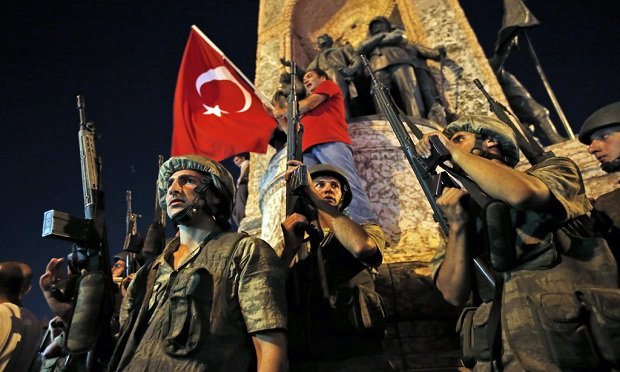 In July 2016, a military coup attempt plunged Turkey into days of protests and violence. Here, Turkish soldiers secure the area as supporters of Turkey's President Recep Tayyip Erdogan protest in Istanbul's Taksim Square on July 16, 2016. (Photo: Emrah Gurel/AP)
In July 2016, a military coup attempt plunged Turkey into days of protests and violence. Here, Turkish soldiers secure the area as supporters of Turkey's President Recep Tayyip Erdogan protest in Istanbul's Taksim Square on July 16, 2016. (Photo: Emrah Gurel/AP)
The January 20th inauguration of President Joe Biden ushered in a new era of politics in the U.S. But the event also had a profound symbolism that dates back over 200 years: The peaceful transition of power is a hallmark of American democracy.
Recommended For You
Want to continue reading?
Become a Free PropertyCasualty360 Digital Reader
Your access to unlimited PropertyCasualty360 content isn’t changing.
Once you are an ALM digital member, you’ll receive:
- Breaking insurance news and analysis, on-site and via our newsletters and custom alerts
- Weekly Insurance Speak podcast featuring exclusive interviews with industry leaders
- Educational webcasts, white papers, and ebooks from industry thought leaders
- Critical converage of the employee benefits and financial advisory markets on our other ALM sites, BenefitsPRO and ThinkAdvisor
Already have an account? Sign In Now
© Touchpoint Markets, All Rights Reserved. Request academic re-use from www.copyright.com. All other uses, submit a request to [email protected]. For more inforrmation visit Asset & Logo Licensing.







